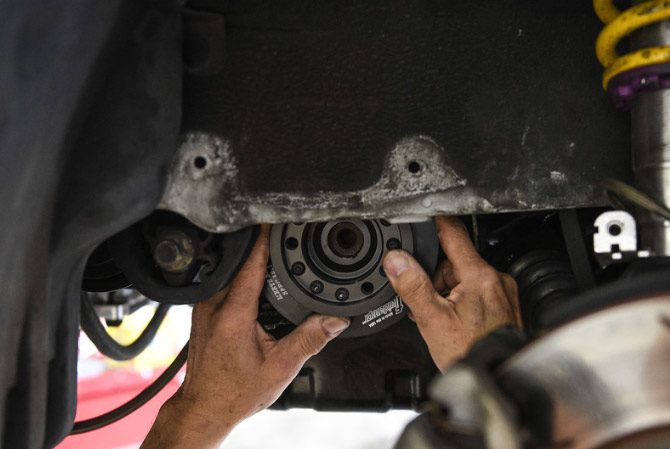By Mike Kojima (MotoIQ.com)
In laying down the base for some serious B series power that we have planned later, we decided to test out Fluidampr’s viscous harmonic balancer on our Project DC2 Integra’s currently bone stock B18C to see what effects it would have. A damper like this is designed to smooth out torsional vibration which is perhaps the most harmful type of vibration to the engine and the most detrimental to power.
Torsional vibration is not related to reciprocating balance as in making sure the pistons, rods, and crank are balanced to each other. Torsional vibration is the cranks whipping reaction to power impulses applied to it via the force of combustion events. The impulses applied to the crank add up to larger potentially damaging forces when the crank hits it’s natural or resonate frequency and increased harmonics of it, particularly 3rd and 4th orders as they can fall within the more stressed higher rpm ranges of operation. Engines with long and or flexible crankshafts are especially prone to crank whip, engines like inline 6 cylinders.
These large vibrations can cause engine damage like crank failure due to high cycle fatigue and bearing wear. As the whip can cause vibrations with an amplitude of over a degree in very extreme cases, it can cause spark scatter as the crank angles sensor gets whipped around. The uncontrolled fluctuations in timing that result from this can cause a loss of power and even engine damage. The whip can cause damage to belt driven accessories like Superchargers and dry sump pumps and even the alternator and power steering. It can also cause belt failure. So torsional whip can be bad, especially on racing engines and engines that are modified to make very high levels of power, high rpm operation and longer than stock stroke.
Read Full Article @ MotoIQ
